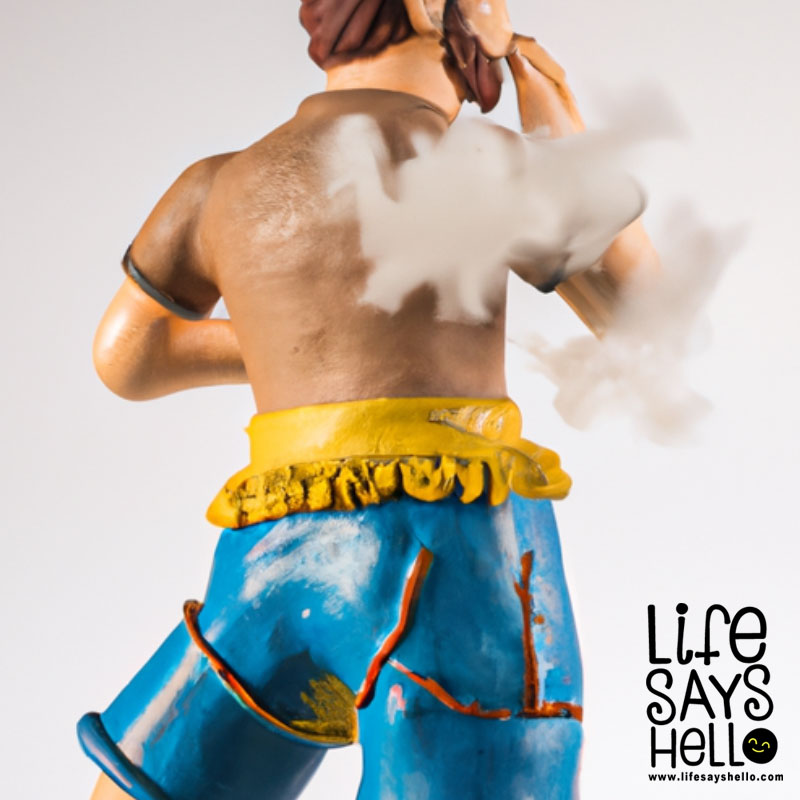Why Does It Burn When I Pee? Exploring Causes, Symptoms, and Home Remedies for Dysuria

Experiencing a burning sensation while urinating can be both uncomfortable and alarming, but understanding the possible causes, symptoms, and home remedies can help you take control of your urinary health and ease your concerns.
Introduction
A burning sensation during urination, also known as dysuria, is a common issue that many people face at some point in their lives. This uncomfortable feeling can be caused by various factors, ranging from mild irritations to more serious medical conditions. In this article, we will explore the common causes of dysuria, when to seek medical help, and some home remedies that may provide relief for mild or occasional symptoms. By understanding the reasons behind this burning sensation and knowing how to address it, you can better manage your urinary health and overall well-being.
Common Causes of Burning Sensation When Urinating
A. Urinary Tract Infection (UTI)
One of the most frequent causes of a burning sensation during urination is a urinary tract infection (UTI). UTIs occur when bacteria, most commonly Escherichia coli (E. coli), enter the urinary tract and cause inflammation. This can result in a variety of symptoms, including a strong, persistent urge to urinate, passing small amounts of urine frequently, cloudy or strong-smelling urine, and pain or burning during urination.
UTIs can affect any part of the urinary system, including the kidneys, bladder, ureters, and urethra. They are more common in women due to their shorter urethra, which makes it easier for bacteria to reach the bladder. However, men can also develop UTIs, especially as they age and their prostate enlarges, potentially obstructing the flow of urine.
B. Painful Bladder Syndrome
Painful bladder syndrome, also known as interstitial cystitis, is a chronic condition that causes bladder pressure, bladder pain, and sometimes pelvic pain. The pain can range from mild discomfort to severe agony and can be accompanied by a burning sensation during urination. The exact cause of painful bladder syndrome is still unknown, but it is believed to involve a defect in the protective lining of the bladder, allowing irritating substances in the urine to penetrate the bladder wall and cause inflammation.
Painful bladder syndrome is more common in women, but it can also affect men and children. The condition can have a significant impact on a person's quality of life, as it can cause frequent urination and disrupt sleep, work, and social activities.
C. Urethral Stricture Disease
Urethral stricture disease is a narrowing of the urethra, the tube that carries urine from the bladder out of the body. This narrowing can be caused by scar tissue, inflammation, or an injury to the urethra. When the urethra becomes narrow, it can obstruct the flow of urine and cause various symptoms, including a weak or slow urine stream, difficulty starting urination, frequent urination, and a burning sensation during urination.
Urethral stricture disease is more common in men, as their urethra is longer and more susceptible to injury. Some common causes of urethral stricture in men include pelvic fractures, catheter insertion, and surgeries involving the urethra or prostate.
D. Prostatitis
Prostatitis refers to inflammation of the prostate gland, a walnut-sized gland located below the bladder in men that produces seminal fluid. There are several types of prostatitis, including acute bacterial prostatitis, chronic bacterial prostatitis, chronic pelvic pain syndrome, and asymptomatic inflammatory prostatitis. These conditions can cause a variety of symptoms, such as difficulty urinating, frequent urination, pain or discomfort in the pelvic area, and a burning sensation during urination.
Prostatitis can be caused by bacterial infections, non-bacterial inflammation, or other factors, such as nerve damage or an immune system disorder. It is important to see a doctor for an accurate diagnosis and appropriate treatment, as untreated prostatitis can lead to complications, such as chronic pain, sexual dysfunction, and infertility.
E. Kidney Disease
Kidney disease, also known as renal disease, refers to a group of conditions that affect the kidneys' ability to filter waste and excess fluid from the blood. One of these conditions, kidney infection (pyelonephritis), can cause a burning sensation during urination. Kidney infections are typically caused by bacteria that have spread from the bladder or urinary tract to the kidneys. Symptoms of a kidney infection may include fever, chills, back or side pain, abdominal pain, and a burning sensation when urinating.
Kidney disease can be a serious condition that requires medical attention. If left untreated, it can lead to kidney damage, kidney failure, and other complications. It is crucial to see a doctor if you suspect you have a kidney infection or other kidney-related issues.
When to See a Doctor
While some cases of burning during urination may be mild and resolve on their own, it is essential to seek medical attention if you have persistent or severe symptoms. This is especially important if you experience additional symptoms, such as fever, chills, back or side pain, nausea, vomiting, or blood in the urine. These could indicate a more serious condition that requires prompt treatment.
If left untreated, some conditions causing dysuria, such as UTIs or kidney infections, can lead to complications, including kidney damage, sepsis, or recurrent infections. Early diagnosis and appropriate treatment can help prevent these complications and improve your overall health.
Home Remedies for Mild or Occasional Burning Sensation When Urinating
If you are experiencing mild or occasional burning during urination, there are several home remedies that may provide relief. However, it is important to note that these remedies should not replace medical advice and treatment for severe or persistent symptoms.
A. Drinking plenty of water
Staying well-hydrated can help alleviate some symptoms of dysuria by diluting your urine and promoting more frequent urination. This can help flush bacteria and irritants from your urinary tract, reducing inflammation and discomfort. Aim to drink at least eight 8-ounce glasses of water per day, or more if you are physically active or live in a hot climate.
B. Avoiding irritants
Certain substances can irritate the urinary tract and worsen dysuria. These include alcohol, caffeine, spicy foods, citrus fruits, and artificial sweeteners. If you notice that your symptoms worsen after consuming these items, try eliminating them from your diet or reducing your intake to see if your symptoms improve.
C. Applying a warm compress to the lower abdomen
Applying a warm compress or heating pad to your lower abdomen can help relax the muscles and alleviate pain and discomfort associated with dysuria. Be sure to use a barrier, such as a towel, between the heat source and your skin to avoid burns. You can also try taking a warm bath or shower to help soothe your symptoms.
D. Taking over-the-counter pain relievers
Over-the-counter pain relievers, such as ibuprofen or acetaminophen, can help reduce pain and inflammation associated with dysuria. Be sure to follow the recommended dosage instructions and consult your doctor if you are unsure whether these medications are safe for you.
Conclusion
Experiencing a burning sensation when urinating can be uncomfortable and concerning, but understanding the possible causes, symptoms, and home remedies can help you take control of your urinary health and ease your worries. It is essential to seek medical attention if you have persistent or severe symptoms, as some conditions causing dysuria can be serious and require treatment. By staying informed and proactive about your urinary health, you can better manage any issues that arise and maintain your overall well-being.




Comments